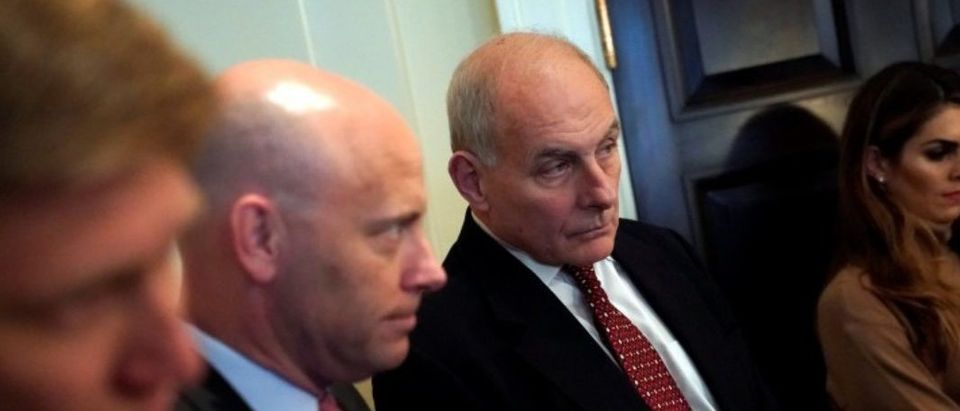White House Chief of Staff John Kelly says the bipartisan immigration plan put forward by Senate Democratic Whip Dick Durbin and Republican Sen. Lindsey Graham failed to meet President Donald Trump’s expectations, telling reporters Wednesday both chambers should play a role in DACA negotiations.
Durbin and Graham — who constructed the bill along with GOP Sens. Jeff Flake of Arizona, and Cory Gardner of Colorado and Democratic Sens. Michael Bennet of Colorado and Robert Menendez of New Jersey — laid out their proposal to the president at the White House Wednesday. While the senators argue the measure addresses the four areas called for by the administration — border security, “chain migration,” the visa lottery system and a legislative fix to the Deferred Action for Childhood Arrivals — Kelly said it “fell short of what he was looking for based on the Thursday conversation and other conversations.”
According to Kelly, while the bill was bipartisan in the sense it was crafted by lawmakers of both parties in the Senate, members of the House and Republican Sens. David Perdue of Georgia, Tom Cotton of Arkansas and Thom Tillis of North Carolina should have been included in the discussions.
“It did not include all of the senators that had been involved in the discussions about DACA, and certainly did not involve the House,” he said. “And the president has said from the beginning, this has got to be bipartisan, and unless it involves the House as well as the Senate, it’s going to go down as a bill that is not going to pass into law.”
Bipartisan DACA negotiations remain ongoing, but Kelly said the White House is committed to finding a solution for immigrants that came to the country illegally as minors and securing the border.
“I will say this: The president that I work for wants 700,000 or so DACA recipients … to have a way to stay in the United States legally. He wants that. That’s a given,” he said. “But what we cannot have is an unprotected, unsecured southwest border that five, six, seven years from now we have another group of six- or seven-hundred thousand DACA people.”


